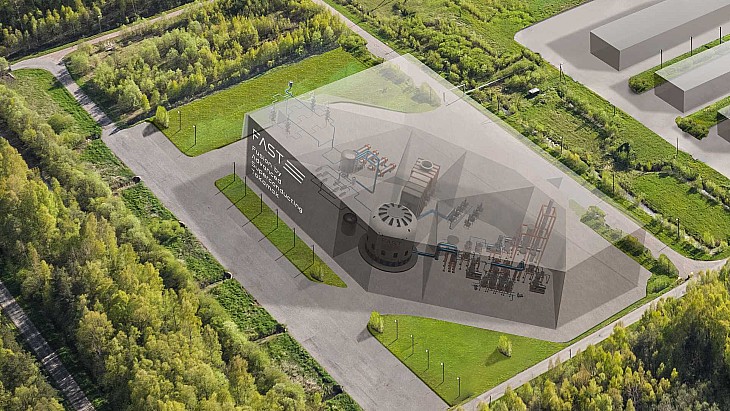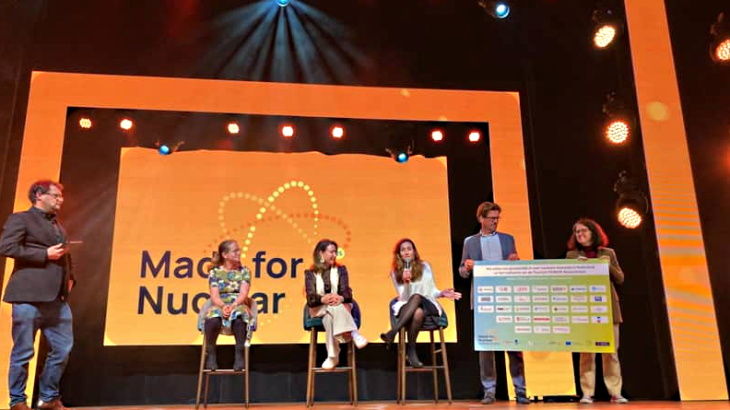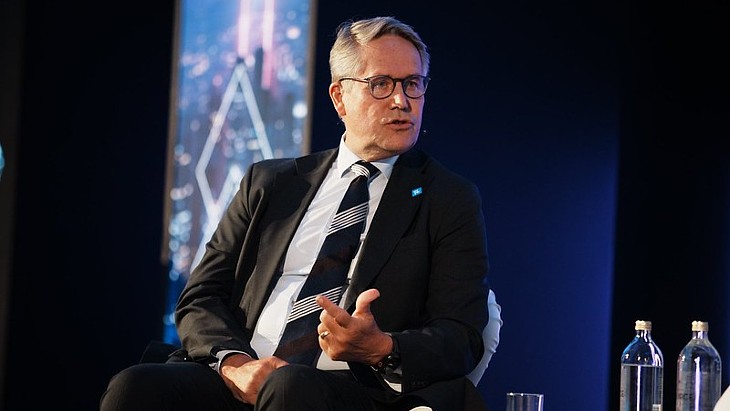At the request of the Hungarian government, the IAEA conducted an integrated review service for radioactive waste and used fuel management, decommissioning and remediation programmes, referred to as Artemis. Artemis missions provide independent expert opinion and advice, drawn from an international team of specialists convened by the IAEA. Reviews are based on the IAEA safety standards and technical guidance, as well as international good practices.
The aim of the mission to Hungary was to support the country in meeting European Union obligations that require an independent review of national frameworks and programmes for the management of used fuel and radioactive waste.
The ten-day mission - hosted by the Hungarian Atomic Energy Authority (HAEA) - concluded on 29 March. The team comprised five experts from Denmark, Finland, France, Lithuania and Sweden, as well as three IAEA staff members. Observers from Slovenia, which will host an Artemis later this year, and from the European Commission, also participated in the mission.
The team held meetings with officials from the Ministry for Innovations and Technology, the Hungarian waste management organisation called the Public Agency for Radioactive Waste Management (PURAM), the Paks nuclear power plant and HAEA.
Hungary generates half of its electricity from four reactors at the Paks plant, where it is planning to construct another two reactors. The country also operates two research reactors, isotope production, and uses radioactive sources in industrial, medical and research applications.
Used fuel from the Paks plant is stored in reactor pools and in an on-site dry storage facility. Two disposal facilities are in operation, one for low and intermediate-level waste from the power plant and one for other institutional waste. A disposal facility is planned for very-low-level waste in preparation for the future shut down and decommissioning of the four existing reactors at Paks. Hungary is moving ahead in the development of a deep geological disposal facility for high-level waste.
The Artemis team said Hungary has developed and implemented a comprehensive, robust and well-functioning system to maintain and further enhance the safety and effectiveness of used fuel and radioactive waste management.
"The Hungarian system provides a well-developed infrastructure for ensuring the safe and effective management of spent fuel and radioactive waste now and in the future," said Artemis team leader David Ulfbeck, senior adviser at the Danish Health Authority. "The Artemis review team noted potential for enhancing the decision-making process for the backend of the fuel cycle and elaborating the regulatory framework for disposal of very-low-level radioactive waste."
The team identified performance in improving the safety of disposal facilities for low and intermediate-activity level waste as a good practice. The team recognised the safety improvement programme which PURAM has designed and implemented at an existing disposal facility at Püspökszilágy based on a comprehensive comparison of different options in terms of long-term safety assessment and evaluation of radiological risks for workers and the public.
The team provided recommendations and suggestions, including: the government should specify when and on what basis decisions regarding the management of used fuel shall be made; and HAEA should consider completing development of safety regulations for management of very-low-level waste including disposal.
The IAEA said the team will submit its final mission report to the government in two months.
"We are very glad to receive independent international feedback that acknowledges Hungary's commitment and efforts in the area of spent fuel and radioactive waste management and we are proud of the good practice found by the experts of the mission," said HAEA President Andrea Beatrix Kádár. "We are committed to continuous improvement. Based on the recommendation and suggestions, we will prepare and implement an action plan that facilitates achieving main goals in this field."

.jpg)



_34792.jpg)
_16403_79272.jpg)



_76087_55556.jpg)



